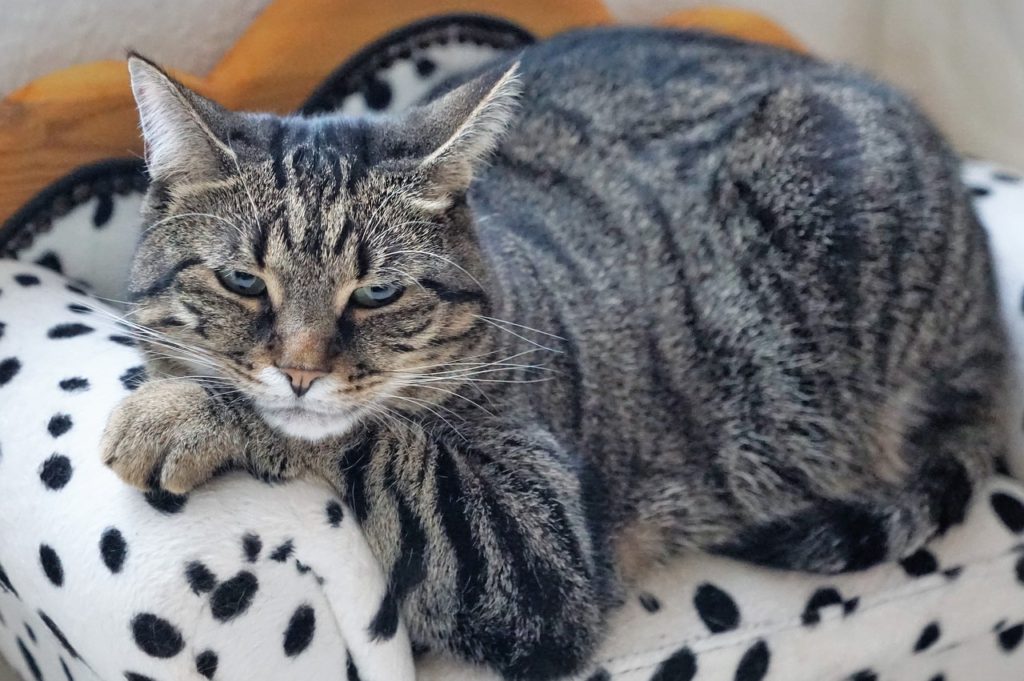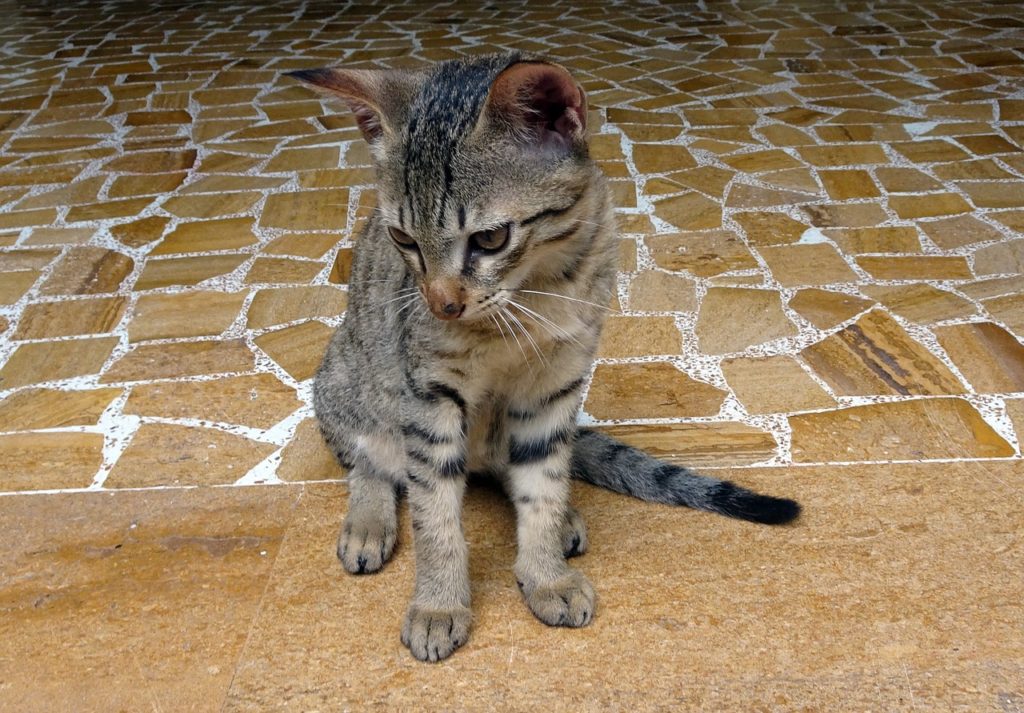
Change in Appetite. If your cat is eating differently, it could be the sign of a medical issue. Cats that don’t eat for several days are at risk for fatty liver disease, which could complicate an already festering issue. A cat that is begging for food while losing weight could have an overactive thyroid. That could lead to high blood pressure, among other health concerns.
Unusual Vomiting. It’s very normal for cats to hack up a hairball and leave it for you as a present to step on right when you get out of the shower. My cat eats too fast and throws it up. Vomiting and cats go together like peanut butter and jelly. However if the vomiting is frequent it could be the sign of a medical problem. If you see blood in the vomit call your vet immediately as this could be the sign of a medical problem. These issues also apply in the litter box. If bathroom behavior changes (i.e. frequent diarrhea) take the cat to a vet immediately.
Discolored Gums. A healthy cat will have pink gums. If you press them with your finger the color will return to pink quickly. If your cat’s gums are anything other than pink it’s a sign of trouble. Different colors mean different health problems. Yellow gums, for example, are a sign of liver problems, while blue gums could mean a lack of oxygen.
Abnormal Behavior. Ultimately, you know your cat best. If the cat’s mood changes it can be the sign of health problems. If the cat is walking abnormally, it could have an injury. If your cat usually plays and becomes lethargic, for example, make an appointment with your vet. It could be a normal change as the cat ages, but any prolonged behavior change can lead to serious health problems.
Excessive Communication. Sometimes your cat will tell you there’s a problem. My cat is a talker and we have frequent conversations. But if your cat is usually silent and suddenly starts to vocalize, it may be trying to communicate a problem to you. Feed the cat, give it some attention and if it is still talking a lot call the vet.
If you haven’t made an appointment for your cat, now is a great time for a checkup! Our staff can examine your cat and get in front of any potential problems before they happen. Regular checkups, even for cats, will prolong their life and give them quality of life as they age. Schedule an appointment for your cat today. For more pet care tips and advice follow us on Twitter!


